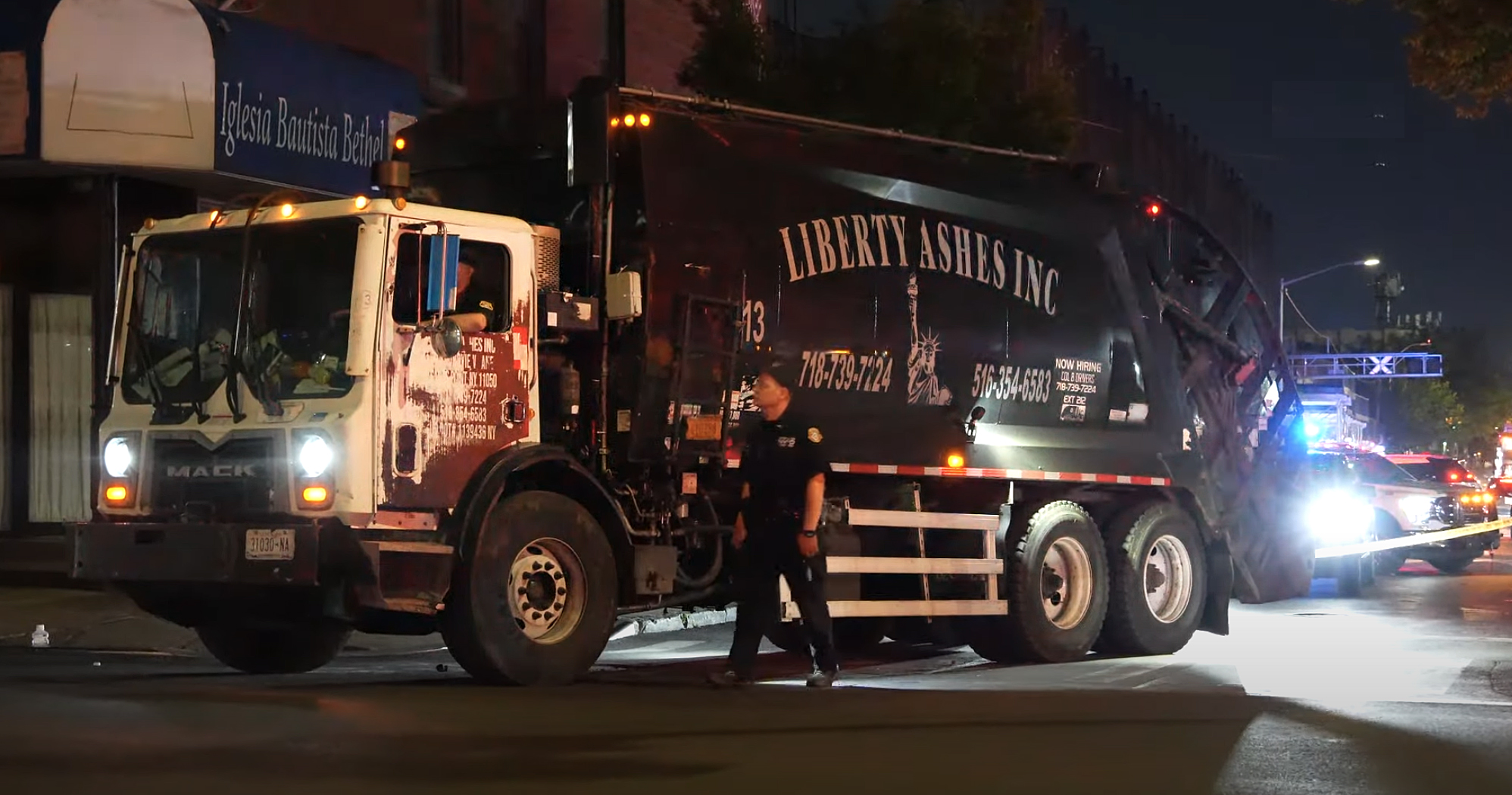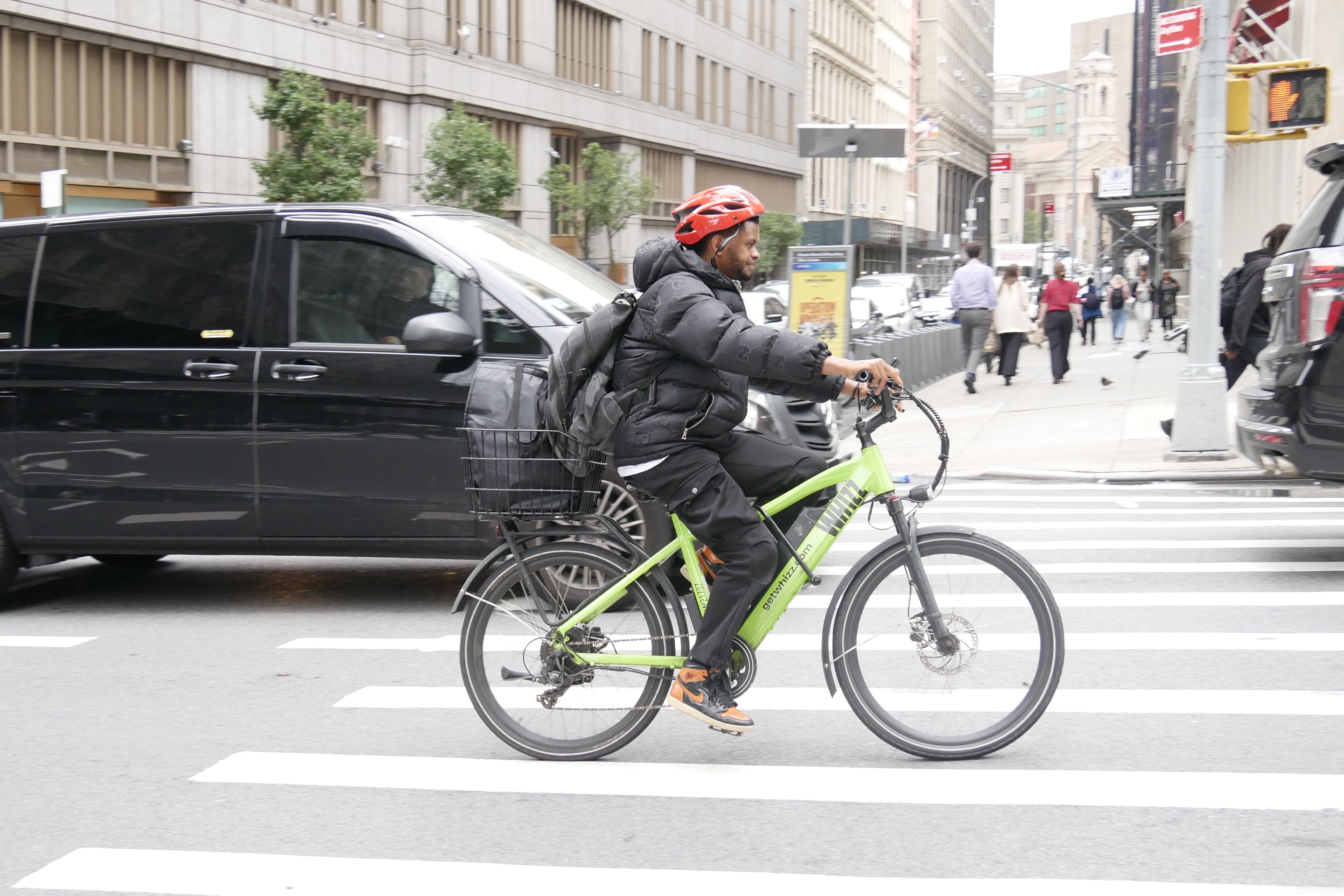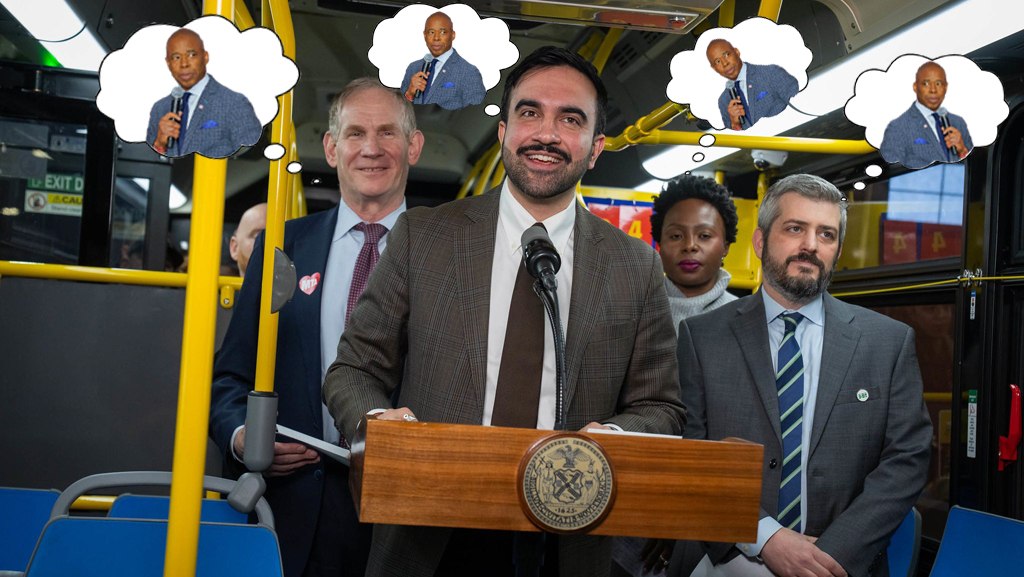Lawmakers lambasted city officials on Monday for letting private trash haulers with checkered safety records not only continue to operate, but also to gain access to new commercial waste zones that will begin rolling out this fall.
At a contentious City Council hearing, the author of the five-year-old law to tame in the city's private garbage trucks accused the Department of Sanitation of undermining the 2019 reforms by prioritizing low prices for garbage company customers over safer driving, improved working conditions and environmental benefits.
"Saving $20 for a business is not worth five human lives," said Brooklyn Borough President Antonio Reynoso, who, as a Council member, penned the reform.
Under the Commercial Waste Zones law, DSNY has to divide the city into zones where only a few companies can operate, aiming to reduce crashes, encourage sustainable waste practices, and improve conditions for workers and residents living near their facilities. But when it rates bidders for the new zones, the Sanitation Department gave the most weight to cost reduction out of more than a dozen factors.
After years of delays, DSNY plans to roll out just one area as a first phase in central Queens this fall.
The city's Business Integrity Commission oversees private carting licenses, and many trash haulers with poor driving histories have gotten their licenses renewed. That's because the commission doesn't take street safety into account for denying permits, the agency's chief admitted to the Council.
At the lengthy Monday oversight hearing, city lawmakers zeroed in on Cogent Waste Solutions, which will operate in four of the 20 zones, but which Streetsblog revealed has a safety record so bad that it will be the first company to be required to hire an outside monitor. (Another company, New York Recycling Solutions, which is partnering with Cogent in two other zones, will also have to hire a monitor).
The Council's Sanitation committee chair was unimpressed.
"Why are we giving licenses in the first place to folks or denying licenses to folks who are engaging in this pretty reckless behavior?" asked Council Member Shaun Abreu (D–Manhattan).
Earlier this year, a Cogent driver allegedly made an illegal u-turn and fatally struck the driver of a Mercedes in southern Brooklyn, the Daily News reported, and the company's drivers have been involved in six crashes in the last two years, killing one person and injuring four others, according to federal records. The organization has also been sued repeatedly by victims of its drivers' recklessness, Streetsblog detailed.
The Greenpoint-based company drew scrutiny from BIC for overcharging customers and falsifying business records, Crain's reported. The firm shelled out a record $500,000 for a settlement — and still has a whopping $47 million in outstanding fines, according to the Commission.
"Cogent was the poster boy as to why this legislation even needed to happen in the first place," Reynoso said. "That we would put this legislation forward specifically to address Cogent, and that they would get a contract is beyond me. I just can't tell you how it undermines the work that we're trying to do."
Cogent is the poster-boy bad actor, paying the highest penalty in BIC’s history.
— Antonio Reynoso (@BKBPReynoso) June 3, 2024
Beyond me how a company requiring an independent monitor made it through the RFP process at all. They shouldn’t have been selected from the start, and they shouldn’t be granted a renewal now. https://t.co/mPzNOiUmYj
Another CWZ awardee, Action Carting, employed the driver who killed cyclist Neftaly Ramirez in Greenpoint in 2017. The firm will operate in 14 of the 20 zones.
DSNY Commissioner Jessica Tisch defended the agency's choice of contractors, saying the companies reduced prices in 18 of the 20 zones. She said the department would fire companies with poor safety records.
"There's a new sheriff in town," Tisch said.
"If there were a number of fatalities where the driver or the company was found to be at fault, that would absolutely constitute a material breach of the awardee’s contract and we would terminate the contract," she added.
A rep for Cogent said the company must "strongly disagree" with Reynoso's comments, which "illustrate a lack of familiarity" with the company.
"We maintain the most rigorous safety standards in the industry, using new equipment operated by qualified union employees under the supervision of highly-trained, certified safety professionals and 24-hour video and GPS surveillance," the spokesman, David Vermillion, said in a statement.
"As partners in the Commercial Waste Zones program with the City of New York and DSNY, we will work productively with the city-appointed monitor to meet our collective goals: keeping the city's streets clean and safe."
Cost to businesses comprise 40 percent of DSNY's grading of potential awardees, the highest share out of more than a dozen factors, Tisch said, because they wanted to avoid the fate of waste reforms in Los Angeles, where costs spiked after a private carting overhaul.
Under city procurement rules, the agency also had to consider any company with a BIC license, Tisch added.
BIC, a little-known agency that originated as an effort to root out the mob during the Giuliani administration, doesn't even consider street safety when giving out or renewing permits, Commissioner Liz Crotty, told the Council, even though it has been required to do so since 2019.
"Safety is not a factor in in terms of denial," said Crotty. "We will take that under advisement, but to date that has not been in statutorily in our list of denial."
Instead, BIC focuses on criminal convictions or whether a business lied to the watchdog under oath.
The Commission has only revoked four licensees over the past 15 years, most recently Sanitation Salvage in 2018, and it has issued 150 denials, which a spokesperson said was "more practical."
"Since companies must renew every two years, historically, denial of the next renewal application, rather than revocation of a currently approved license, has typically been the more practical route and the way the Commission has exercised its authority in this area," said BIC spokesperson Nicole Mathias.






